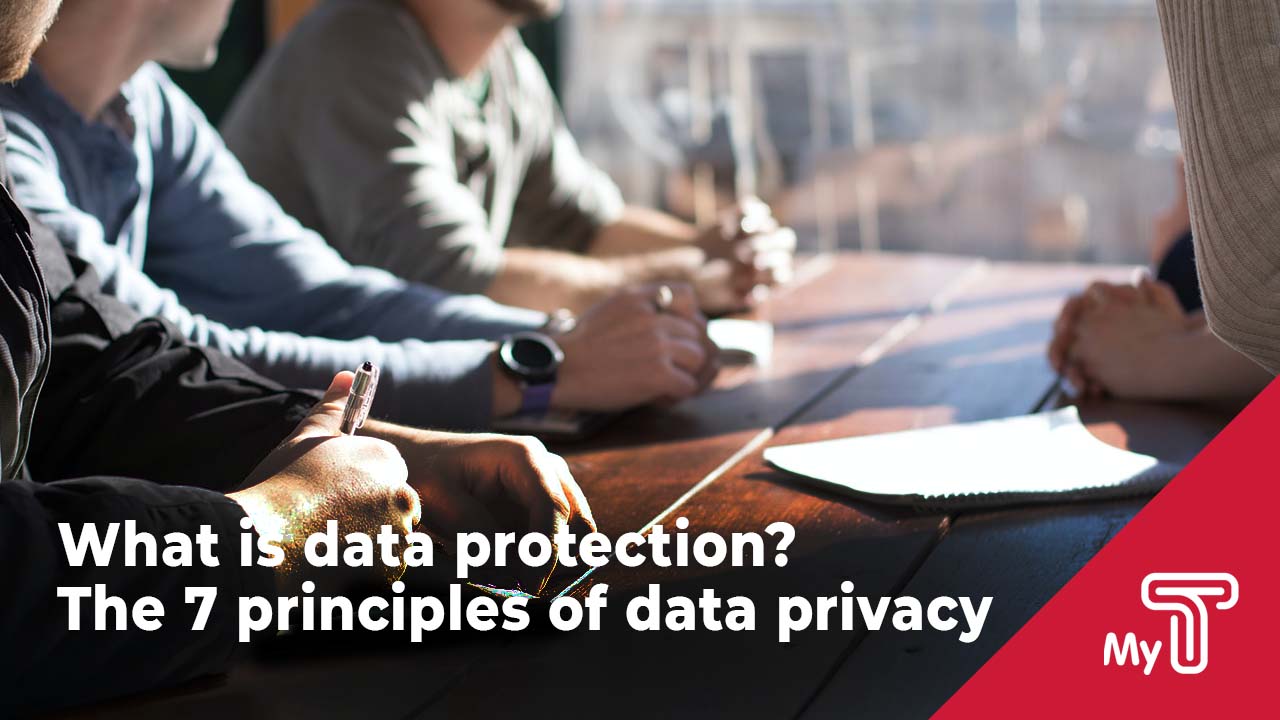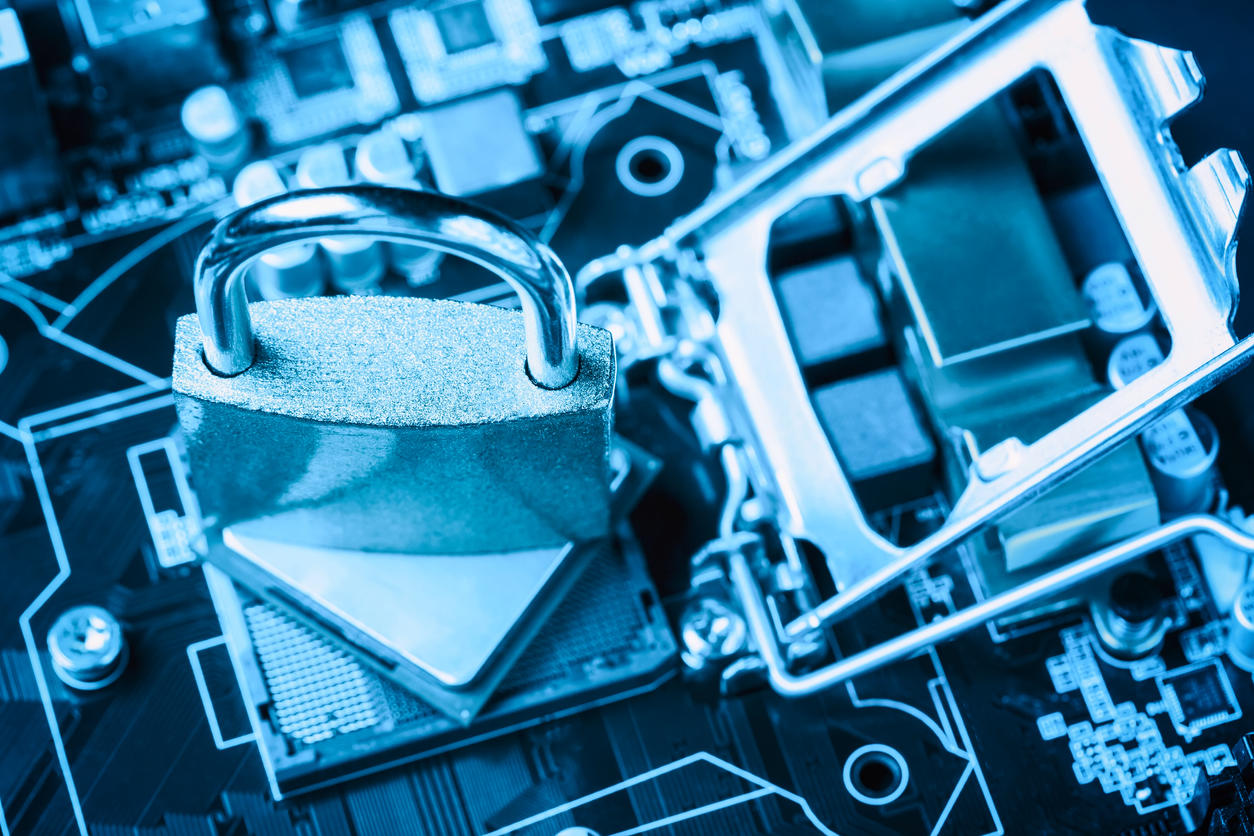What is data protection? The 7 principles of data privacy.
Privacy and data protection are fundamental rights for you. This guarantees to you, control of those data that can identify you personally. Privacy is one of the top user concerns in the digital age. The circulation of personal data on the internet has created to phenomena such as spam or phishing. This can put your personal information as an Internet user at risk.
For all this, it is of fundamental importance that you know about the privacy and protection of your personal data. The Law in Spain protects your right to preserve your intimacy and privacy against possible violations. It also gives to you the right to be the owner of your personal data, and to authorize which companies and entities collect and process them.
But what is considered personal data? What is digital privacy? What should you do to take care of your information? This and other questions you can solve by checking our most recent article, let’s see.

What is digital privacy?
A huge amount of information circulates on the internet. Among everything that circulates on the network are your personal data and those of other users. By doing things as simple as using a browser, posting a photo on a social network or leaving a comment on a blog, we are show personal information that leaves a trace on the network.
Therefore, it is very important that you know what is digital privacy? So, you will also know how you can increase the security of your data on the internet.
Let’s start by looking at the meaning of digital privacy. This term refers to the right we have as users to protect our data on the network. This is how we decide what information is visible to the rest.
It is the same as when we restrict someone’s entry to our home or work. Thus we have the right to prevent others from accessing our personal data on the internet without consent.
The concept of digital privacy is relatively new. Digital privacy is linked to the emergence and development of the internet and telecommunications. In fact, until recently there was no clear regulation in this regard.

What characteristics does digital privacy have?
Digital privacy is defined by:
- All the information of a user that circulates on the internet. In addition to personal data such as our name, ID, telephone, address, etc.
- The particularities of the internet also make privacy relate other terms to us. For example, it also includes images, videos, email, geolocation, browsing history, IP … Any other data that allows us to be identified on the network.
- It is not limited to the use of web pages or social networks. Privacy refers to the transmission of data through online stores, applications, instant messaging services, etc.
Other terms of importance
The digital identity or fingerprint
It is the trace that you leave on the internet as a user. When you publish a photo, you write in a blog, you leave comments on a website … in short, almost any action you take on the internet leaves a trace.
Digital privacy
What guarantees you that you can safeguard the information that you want to keep anonymous. It is what you leave out of the reach of the internet.
Right to be forgotten
It is your right to request that information that you do not want to be seen by other users be removed from the internet. The requirement to proceed with its elimination is that it is outdated, irrelevant or excessive information.
Digital will
If you are the heir of a person, you can request that personal information be deleted if they have died. This is possible as long as the family member has not expressly forbidden it in life. This includes any type of data. From photos or profiles of social networks, to bank accounts or passwords for access to web services.
Advantages and disadvantages of digital privacy
Everything always has advantages and disadvantages, and digital privacy does not escape from it. Let’s see:
Advantages:
- It allows you to increase the security of the information. It also protects you against fraud, cyberattacks such as hacks or identity theft.
- You can decide what your digital identity is, that is, the image that the internet projects of you to other users.
- Only those users, companies or service providers to whom you have given consent will be able to access your data.
- You can adapt your profile and your interests to the contents, products or services that they offer you.
Disadvantages
- The Internet is an immense network, in which a huge amount of data circulates. Controlling the flow of information is not a realistic goal.
- You come into conflict with the interests of large companies and corporations. Companies have enormous power and prefer to face the payment of fines rather than heed the privacy regulations dictated by governments.
- You may run into people who don’t understand the importance of protecting digital information.
- You will see some people who continue to accept terms and conditions of use without reading them.
- Past generations find it difficult to adapt to the new demands in this field.
- The digital age is moving fast and waiting for no one.

Risks of digital privacy
In concrete terms and practices, you should know the most common risks of digital privacy:
Phishing
it is a method of computer abuse that consists of fraudulently obtaining your confidential information to impersonate your identity.
Spam
Mass reception of spam emails.
Viruses and Trojans
Programs that sneak into your computer to carry out unsolicited actions: information theft, data erasure, etc. They can be camouflaged within seemingly harmless programs or applications.
Cyberbullying
Using the internet or social media to threaten, harass or blackmail you.
7 principles of data privacy
If you want to keep your data protected, you should never forget the principles of digital privacy:
- Read the conditions before giving any type of information on the internet or signing up for a service. Do not share personal information on websites or social networks (real name, ID, address) or photos that could compromise you in any way.
- On social media, accept friend requests only from people you know or trusted profiles.
- Do not register for services through your social media profile, as said service could access information from your networks. Do it better by email address. Configure the privacy of your profile on the platforms or services in which you have registered.
- Use strong password encryption systems like Last Pass. Periodically delete your browsing history or configure the browser so that it does not store this information.
- Avoid connecting to the internet through unsecured public Wi-Fi networks: hotels, phone booths, airports.
- Remember to always log out, especially when logging into your account from a device that others might have access to.
- Disconnect the GPS from your mobile phone when you are not using it, since you will avoid knowing where you are at all times.

Conclusion
Digital privacy is something that every internet user should be aware of. Do not share information with anyone, take care of your personal data, passwords, etc. These are aspects that must be 100% clear to you.
Your protected data provides peace of mind. Knowing that you are not exposed to a scam online is something you must guarantee. Knowledge is power and that is why we hope you have learned how to protect your data with this short review. Keep checking our blog for more updates.
